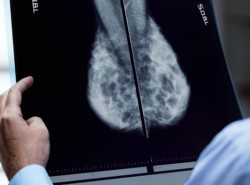
Pin-Pointing Cancer-Causing Mutations on a New Breast Cancer Gene
Published: 10/7/19 11:23 PM

Rohan Bythell-Douglas
- Project description: Dr Bythell-Douglas’ project investigates the FANCM gene, which has been implicated in hereditary breast cancer. Dr Blythell-Douglas and his research team will look at why mutations in the FANCM gene predispose women to breast cancer.
- Why this work is needed: There is currently a lack of knowledge about the FANCM gene. By using an imaging technique called cryo-electron microscopy, detailed molecular information on mutations in the FANCM gene will be uncovered. The goal is to improve current genetic testing for predicting breast cancer risk in patients by providing more certainty around specific mutations.
- Expected outcomes: The project will provide evidence to support the introduction of FANCM genetic testing in the clinic, which would provide more information for those interested in their familial breast cancer risk. Furthermore, the findings from this study may identify new treatment strategies for women with FANCM-related hereditary breast cancer.
Project details
Breast cancer caused by inherited predisposition makes up about 10% of cases. It occurs at younger ages and is usually triple negative breast cancer (TNBC), one of the most difficult to treat. Thanks to high profile stories from celebrities with genetic predisposition like Angelina Jolie, there is widespread understanding of the link between the BRCA1 and BRCA2 genes and breast cancer. Recently, a new gene has been identified as a risk factor for inherited breast cancer, called the FANCM gene. A lot less is known about this gene.
In a new study funded by NBCF, Dr Rohan Bythell-Douglas will bring expertise in a breakthrough imaging technique to Australia to learn more about the FANCM gene. This technique, called cryo-electron microscopy, will provide very detailed molecular information on the variants of the FANCM gene.
Dr Bythell-Douglas and his team will use this information to investigate why the FANCM gene mutations predispose women to breast cancer. This project will likely lead to the introduction of FANCM genetic testing in clinics. This will help to boost the quality of information for women who are interested in their genetic risk. In addition, the findings may help to direct future treatment options for women with inherited breast cancer.